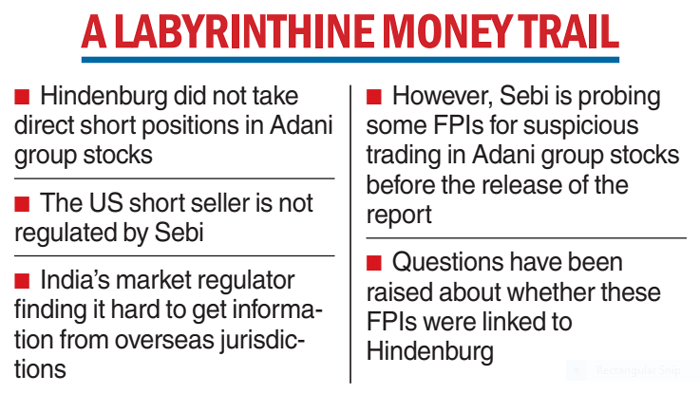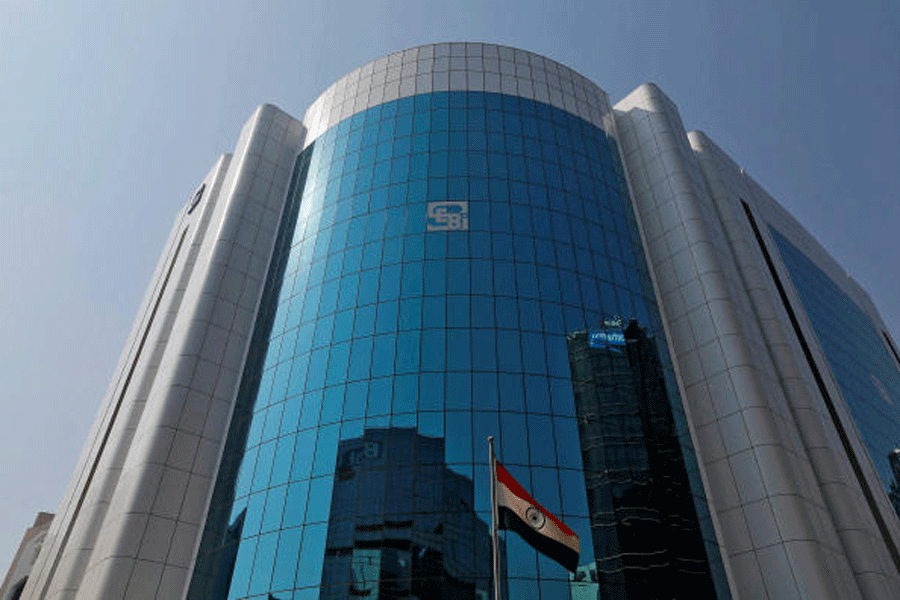The Securities and Exchange Board of India (Sebi) faces a tough task to detect any wrongdoing by Hindenburg Research that hurt domestic investors when it released its damaging report on the Adani group.
On Wednesday, the top court asked the market regulator to probe the loss "sustained by Indian investors as a result of the volatility caused by the short positions taken by Hindenburg Research and any other entities acting in concert’’.
Short selling happens when investors bet on a falling market: they borrow securities intending to sell them at a higher price and later re-purchase them, profiting from the expected fall in the price.
Sources said that Hindenburg did not take direct short-positions in Adani group stocks was a major challenge before Sebi.
At the time of the release of its report on the Adanis — on January 24, 2023 — Hindenburg said that it has "taken a short position in Adani Group companies through US-traded bonds and non-Indian-traded derivative instruments’’.
It did not disclose the extent or size of these positions, the type of derivatives or underlying shares in which it took the short positions.
Details in this regard are still unclear, and it remains to be seen how India’s market regulator will get to the bottom of these trades, particularly when it has been finding it difficult to get information from overseas jurisdictions as it investigated the charges made by the US short-seller.
Moreover, Hindenburg is also not a regulated entity by Sebi.
Some headway
At the same time, the Sebi is conducting a detailed investigation on at least six entities including four foreign portfolio investors (FPIs) for suspicious trading in Adani group stocks before the release of the Hindenburg report.
This was disclosed by the Supreme Court-appointed committee headed by former judge A.M. Sapre.
This has led to questions on whether the FPIs were aware of the report before it was made public and whether they were in any way linked to Hindenburg.
The panel had said in its report that Sebi had examined whether there had been any unusual trading pattern before the release of the report during the period January 18-23, 2023.
"While there was no adverse observations concerning Adani scrips in the cash segment, suspicious trading has been observed on the part of six entities. These are four FPIs (not from among 12 FPIs suspected of minimum public shareholding), one body corporate and one individual,’’ the report had said without disclosing their identities.
It went on to add that the trading pattern is suspicious because of the build-up of short positions by these entities in the Adani scrips before the Hindenburg report.
They earned substantial profits by squaring off their positions after the publication of the Hindenburg report.
While some of the Adani group bonds are listed overseas, there needs to be more detail about the non-Indian-traded derivative instruments which Hindenburg referred to in its report.












